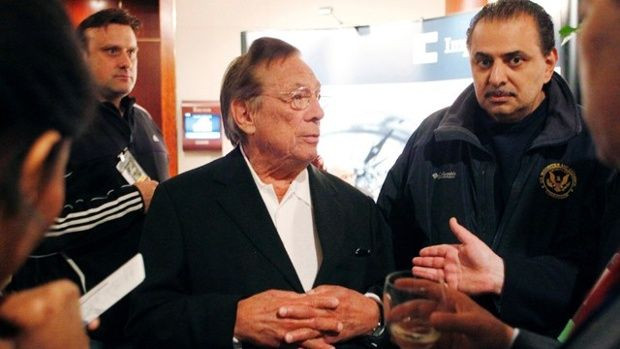Clippers Sold: Was Donald Sterling Really Punished For Selling The NBA Team?

In what at first appeared to be a draconian measure by the NBA to penalize owner Donald Sterling for racist remarks, the recent sale of the Los Angeles Clippers for a staggering $2 billion raises questions about the severity of Sterling’s punishment.
Sources on Thursday confirmed that former Microsoft CEO Steve Ballmer will purchase the Clippers, an organization whose historic failures made them the butt of late-night TV jokes for decades. The $2 billion figure represents the second-highest sale price ever for a sports organization, and the most ever for an NBA team.
Multiple barriers still remain before the sale goes through, but at the moment Sterling is looking more like a sharp businessman than a disgraced owner. The Clippers were valued by Forbes at $550 million, but the number of high-profile bidders in a rush to purchase a team in the No. 2 media market in the nation appears to have driven the price up fourfold.
“Unlike the purchase of many other businesses, there are individuals that are willing to pay more than the fair market value for a professional sports team, simply to join the club of ownership,” said Marc Edelman, a sports law professor at the Zicklin School of Business at Baruch College in New York.
The Sterling family trust also received two other offers that were well over $1 billion -- a nice haul for a team that was purchased for $12.5 million in 1981.
But the windfall has a price. Sterling was publicly embarrassed and scorned for his racist comments, and even received condemnation from the White House. In a poll released on Wednesday by E-Poll database, Sterling topped the list of most hated men in America, ahead of O.J. Simpson and Bernie Madoff.
Along with calling on the league’s owners to vote for a forced sale of the Clippers, NBA Commissioner Adam Silver also banned Sterling from the league for life, and fined him $2.5 million. But even that punishment has to be taken with a grain of salt.
Prior to the sale of the Clippers, Forbes listed Sterling’s net worth at about $1.9 billion, so a $2.5 million fine consists of less than half of 1 percent of his fortune. And a lifetime ban from the NBA seems rather irrelevant, particularly considering Sterling turned 80 in April.
Sterling’s lawyer, Max Blecher, recently told ESPN that Sterling disavowed the agreement with his wife that allowed her to negotiate the sale of the team. However, it would be hard to envision how Sterling could maintain the team given the amount of public opposition to him, as well as the aggressive efforts the NBA made to remove him from the league. It seems that it would be in Sterling’s best interests if he simply accepted the enormous offer the family trust received from Ballmer and counted his blessings and moved on. By not taking up his grievances in court, Sterling would avoid a harsher punishment to this pocketbook: lawyer fees.
Perhaps the most interesting aspect of Sterling receiving a huge offer for the Clippers is that even the NBA seems to have come out as big winners. The league should feel ecstatic that they now have a wealthy owner who is willing to spend in Ballmer.
It was a poorly kept secret that former NBA Commissioner David Stern was frustrated with Sterling’s inability or unwillingness to invest in his club. Before moving into Staples Center in 1999, the Clippers played at the Los Angeles Memorial Sports Arena, a public facility in desperate need of a facelift, when numerous teams were building their own arenas. The Clippers also often had the lowest payroll in the league, which was particularly concerning considering the size of the L.A. market and with the Clippers playing in the same city as the highly successful Lakers.
While Sterling was well compensated for having to sell his team, the NBA can breathe a sigh of relief that they no longer have him in the league.
© Copyright IBTimes 2024. All rights reserved.






















